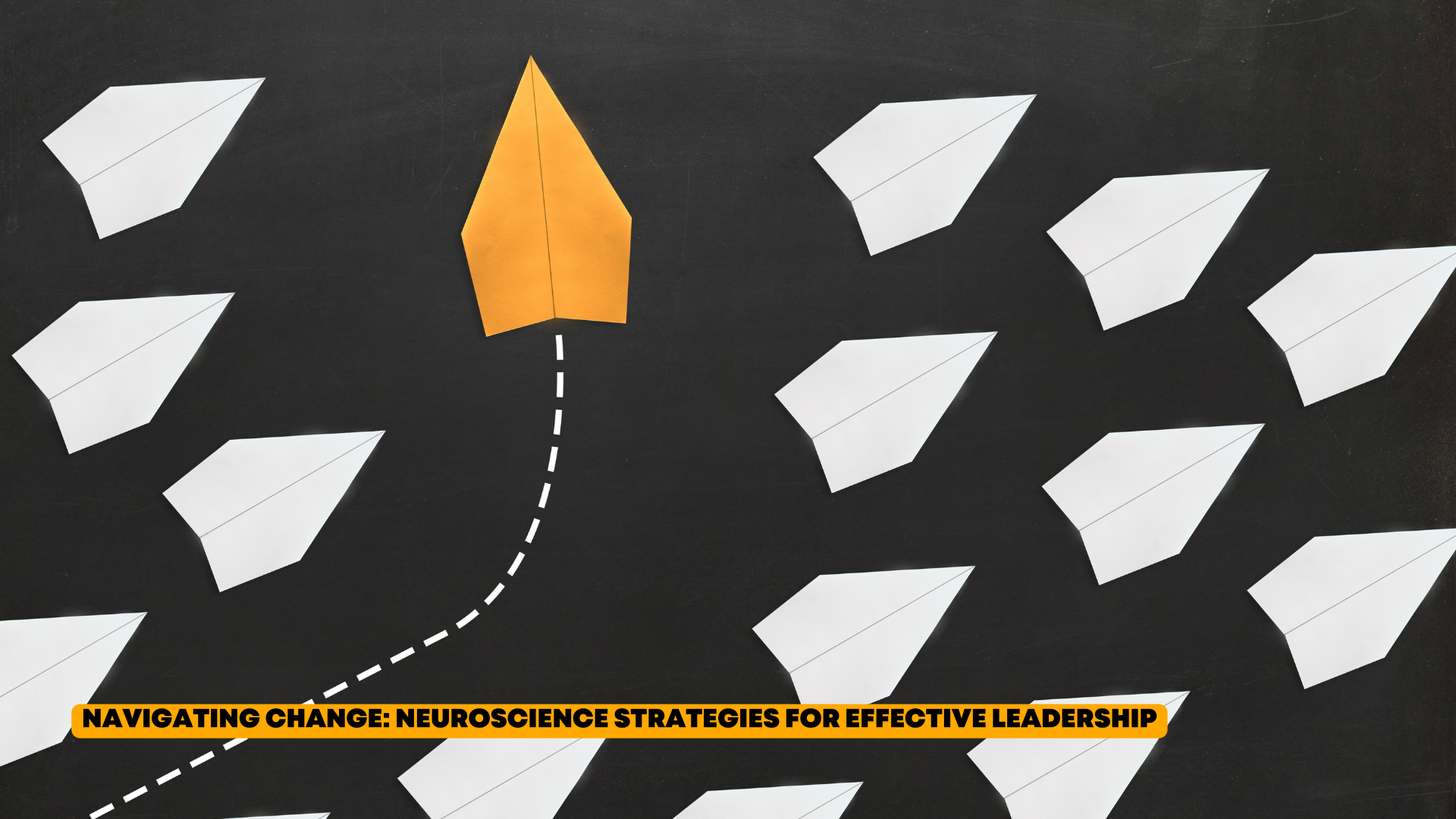The Top Mind-Expanding Neuroscience Books That Will Blow Your Mind
The brain is the command center behind our thoughts, emotions, and actions, and by delving into the intricacies of neuroscience, you gain valuable insights into why we behave the way we do. These insights can be applied to various fields, including psychology, education, marketing, and leadership, enabling you to make more informed decisions and better understand the motivations behind human actions.
The power of the brain: Understanding neuroplasticity and its impact on personal growth
Neuroplasticity is a concept that challenges the long-held belief that the brain is a fixed and unchangeable organ. As neuroscience research continues to advance, we now know that the brain can rewire itself in response to experience and learning. This phenomenon opens up a world of possibilities for personal growth and self-improvement.
By understanding neuroplasticity, you can harness the brain's potential to change and adapt, improving various areas of your life. For example, if you're looking to enhance your memory, neuroscience books can provide valuable insights into memory formation and techniques for improving recall. Similarly, understanding how the brain learns and unlearns can be a game-changer if you're seeking to develop new skills or overcome negative habits.
Neuroplasticity also offers hope for individuals recovering from brain injuries or neurological conditions. Researchers and clinicians can develop innovative therapies and interventions to promote healing and rehabilitation by understanding the brain's ability to rewire itself. Neuroscience books contribute to the collective knowledge in this field and inspire and empower individuals to take control of their own brain health and well-being.
The role of neuroscience in understanding human behavior and decision-making
Have you ever wondered why we make certain decisions or behave in a particular way? Neuroscience has provided fascinating insights into the brain's inner workings, shedding light on the complex processes that underlie human behavior and decision-making.
Neuroscience books delve into the various factors that influence our choices, from the role of emotions and social influences to the interplay between conscious and unconscious processes. By exploring these factors, you gain a deeper understanding of why we sometimes act irrationally or make choices that seem counterintuitive. This knowledge can be applied to various domains, such as marketing and advertising, where understanding consumer behavior is crucial.
Also, neuroscience research has shed light on the neural mechanisms underlying addiction, mental health disorders, and cognitive biases. Researchers and clinicians can develop more effective interventions and treatments by understanding the brain processes involved in these conditions. Neuroscience books provide a gateway into this fascinating field, equipping readers with the knowledge to understand themselves and others better.
Recommended neuroscience books for beginners
If you're new to the world of neuroscience, diving into complex scientific literature might seem overwhelming. Fortunately, there are plenty of accessible and engaging books that serve as excellent starting points for beginners. These books introduce key concepts and provide a solid foundation for further exploration. Here are a few recommendations to get you started:
"The Brain That Changes Itself" by Norman Doidge: This groundbreaking book explores the concept of neuroplasticity and showcases inspiring stories of individuals who have overcome brain injuries and neurological conditions through the power of neuroplasticity.
"The Tell-Tale Brain" by V.S. Ramachandran: Ramachandran takes readers on a captivating journey through the mysteries of the brain, exploring topics such as consciousness, perception, and the nature of reality.
"Incognito: The Secret Lives of the Brain" by David Eagleman: In this thought-provoking book, Eagleman delves into the hidden workings of the brain, challenging our assumptions about free will and the conscious mind.
These books provide a solid introduction to the fascinating world of neuroscience and offer a glimpse into the mind-boggling discoveries that await. Whether you're a beginner or a seasoned enthusiast, these reads will captivate and expand your understanding of the brain.
Advanced neuroscience books for those looking to dive deeper into the field
For those who have already dipped their toes into the world of neuroscience and are hungry for more in-depth knowledge, plenty of advanced books delve into the complexities of the brain. These books tackle cutting-edge research and theories, providing a deeper understanding of the intricacies of neuroscience. Here are a few recommendations for those looking to dive deeper into the field:
"The Synaptic Self: How Our Brains Become Who We Are" by Joseph LeDoux: LeDoux explores the intricate connections between neurons and how they shape our identity, emotions, and behavior.
"The Brain's Way of Healing" by Norman Doidge: Building upon his previous work, Doidge explores the latest breakthroughs in neuroplasticity and showcases innovative therapies that harness the brain's healing potential.
"Principles of Neural Science" by Eric R. Kandel: This comprehensive textbook provides a detailed exploration of the fundamentals of neuroscience, covering topics ranging from neural circuits to cognitive processes.
These books offer a deeper dive into the complexities of neuroscience, allowing readers to explore cutting-edge research and theories. While they may be more challenging, the knowledge gained from these advanced books is invaluable for those seeking a deeper understanding of the brain.
Mind-expanding neuroscience books that challenge traditional thinking
The most mind-expanding books often challenge our preconceived notions and push the boundaries of what we thought was possible. In neuroscience, several books have caused paradigm shifts and challenged traditional thinking. These books explore groundbreaking ideas and present bold theories that have the potential to reshape our understanding of the brain. Here are a few mind-expanding reads that will leave you questioning everything:
"The Man Who Mistook His Wife for a Hat" by Oliver Sacks shares captivating case studies of individuals with neurological disorders, offering profound insights into the relationship between the brain and our perception of reality.
"Phantoms in the Brain: Probing the Mysteries of the Human Mind" by V.S. Ramachandran and Sandra Blakeslee: This mesmerizing book explores neurological disorders' strange and mysterious world, providing a glimpse into the mind's inner workings.
"The Hidden Brain: How Our Unconscious Minds Elect Presidents, Control Markets, Wage Wars, and Save Our Lives" by Shankar Vedantam: Vedantam delves into the unconscious biases and hidden influences that shape our thoughts, decisions, and actions.
These books challenge traditional thinking and offer fresh perspectives on the complexities of the human brain. By pushing the boundaries of what we thought we knew, they open up new avenues of exploration and expand our understanding of the mind.
Exploring the intersection of neuroscience and psychology in popular books
Neuroscience and psychology are closely intertwined, each offering valuable insights into the workings of the human mind. Many popular books explore the intersection between these disciplines, shedding light on how our brains shape our thoughts, emotions, and behaviors. These books offer a unique blend of scientific research and real-life anecdotes, making complex concepts accessible to a wide audience. Here are a few recommendations for those interested in the intersection of neuroscience and psychology:
"Thinking, Fast and Slow" by Daniel Kahneman: Kahneman, a Nobel laureate, explores the two systems that drive our thinking - the fast, intuitive system and the slow, deliberate system - and how they influence our decision-making.
"Emotional Intelligence: Why It Can Matter More Than IQ" by Daniel Goleman: Goleman explores the concept of emotional intelligence and its impact on various aspects of our lives, from relationships to success in the workplace.
"The Power of Habit: Why We Do What We Do in Life and Business" by Charles Duhigg: Duhigg delves into the science behind habits, exploring how they are formed, how they can be changed, and their impact on our lives.
These books provide a fascinating blend of neuroscience and psychology, offering a deeper understanding of how our brains shape our behaviors, thoughts, and emotions. By exploring the intersection of these fields, readers gain valuable insights into the complexities of human cognition and behavior.
The future of neuroscience and its potential impact on society
As neuroscience advances at an unprecedented pace, the future holds exciting possibilities for the field. Emerging technologies and research methodologies are pushing the boundaries of our understanding of the brain, opening up new frontiers for exploration. The potential impact of neuroscience on society is vast, with implications ranging from healthcare to education and beyond.
Advances in neuroimaging technology, such as functional magnetic resonance imaging (fMRI) and electroencephalography (EEG), allow researchers to peer into the brain's inner workings with unprecedented detail. These technologies promise to improve the diagnosis and treatment of neurological disorders and enhance our understanding of brain function and cognition.
Neuroscience research is also contributing to the development of brain-computer interfaces (BCIs) and neuroprosthetics, which have the potential to revolutionize the lives of individuals with disabilities. These technologies enable direct communication between the brain and external devices, opening up possibilities for restoring lost sensory or motor function.
The intersection of neuroscience and artificial intelligence (AI) yields fascinating insights into how the brain processes information and learns. By studying the brain's neural networks, researchers are developing AI algorithms that mimic the brain's ability to recognize patterns and make predictions. This convergence of neuroscience and AI can potentially revolutionize robotics, healthcare, and education.
The future of neuroscience is full of possibilities, and the impact on society is bound to be profound. As our understanding of the brain deepens, so too does our ability to unlock its mysteries and harness its potential for the betterment of humanity.
















